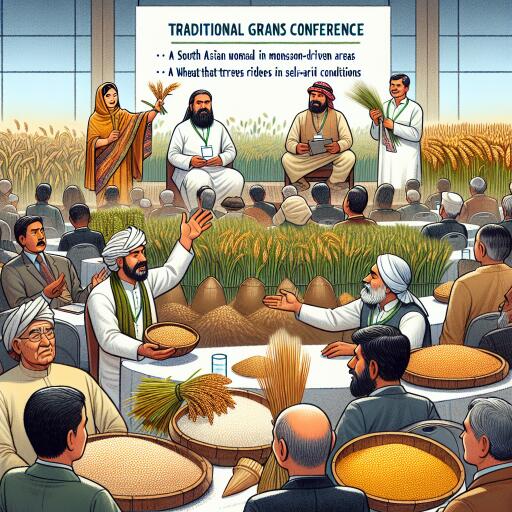
Traditional Grains Conference Highlights the Importance of Agro-Ecological Zones in Ensuring Food Security
Seed houses have been urged to distribute suitable seed varieties, especially traditional grains, according to agro-ecological zones. This approach is a crucial strategy in countering the negative impacts of climate change, highlighted Professor Obert Jiri, permanent secretary of Lands, Agriculture, Fisheries, Water, and Rural Development, at the recent Traditional Grains Conference.
Delivering the keynote address, Professor Jiri emphasized that what is grown in an agro-ecological zone should be determined by the specific needs and conditions of that region, rather than the preferences of individual farmers.
Research shows that crops matched to their specific agro-ecological zones perform significantly better than those grown without considering regional requirements. Adopting this practice is a key step towards achieving food security and reducing dependency on maize.
The implementation of this strategy has led to an increase in the cultivation of traditional grains, especially in the southern provinces of the country. Farmers in regions that receive below-normal rainfall have been encouraged to grow traditional grains, which are known for their drought tolerance.
Traditional crops such as sorghum, millet, and rapoko are slowly gaining popularity as awareness of their high nutritional value grows, supported by technological advancements that have introduced machinery for their processing.
Professor Jiri highlighted the continuous struggle of his ministry to ensure food security in the face of persistent climate change effects.
The conference, themed “Unlocking the Potential of Traditional Grains for Food and Feed Security,” brought together academics, seed houses, and various stakeholders.
Professor Jiri underscored the necessity of adhering to the agro-ecological targeting system to further the traditional grains adaptation agenda.
“Traditional grains are pivotal in the battle against climate change. In 2020, academics and researchers recognized that outdated agro-ecological regions needed updating due to climate change, prompting a revision in crop cultivation per region. Crop suitability mapping must be respected. Farmers should cultivate crops dictated by agro-ecological zones, not personal choice,” he said.
He pleaded for seed houses to refrain from pushing traditional grain varieties in unsuitable regions and called for their cooperation for the traditional grains agenda to succeed.
Professor Jiri also urged fertiliser firms to create products specifically designed for traditional grains to ensure successful yields.
Traditional grains play a crucial role in Zimbabwe’s agricultural sector, contributing to food security, nutrition, and sustainable livelihoods.
The conference followed the approval of the Summer Plan for the 2024/25 season by the Cabinet, which focuses on agro-ecological mapping and climate-proofing at both household (Pfumvudza/Intwasa) and national levels (irrigation). The Presidential Input Programme aims to enhance traditional grain seed provision.
Southern regions of the country, including the Matabeleland, Midlands, and Masvingo provinces, are most suitable for growing small grains such as sorghum and pearl millet due to their alignment with local climate patterns and ecological zones.
During the event, the importance of developing a robust traditional seed bank with strong genetics through the collaboration of seed houses, researchers, growers, the private sector, and the Government was emphasized.
It was noted that the private sector’s lack of enthusiasm for funding traditional grain projects needs to change to ensure the country can achieve food and seed security.





Leave a Reply